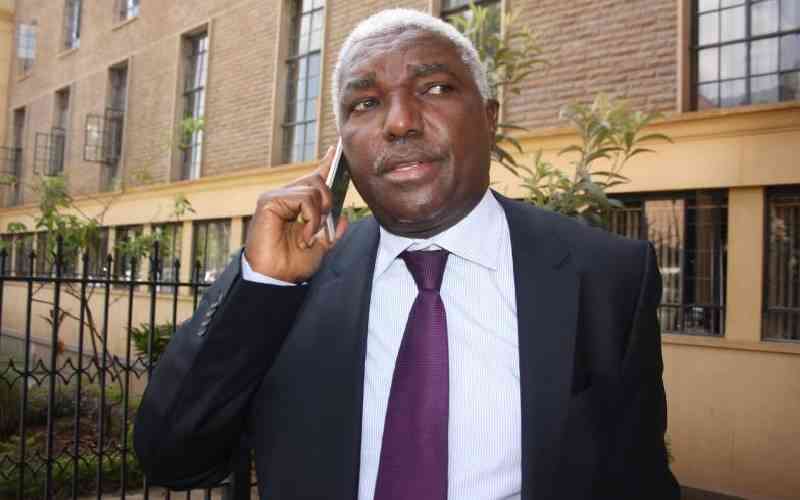×
The Standard e-Paper
Kenya’s Boldest Voice

Former Foreign Affairs PS Thuita Mwangi at the Millimani law courts on March 30, 2016 after he and two other were acquitted in the Tokyo embassy case. [File, Standard]
Former Foreign Affairs Permanent Secretary Thuita Mwangi has been given the greenlight to pursue compensation from the government for seven years he was kept in the cold.